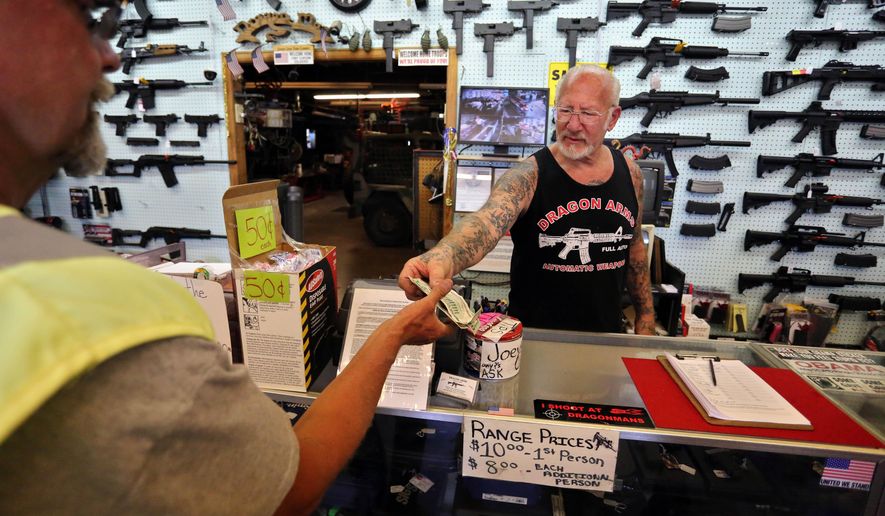The federal background check system missed 7 percent of gun purchases that should have been denied over the past decade based on the buyer’s domestic violence record or a court protective order, the government’s chief watchdog said Tuesday.
While 89,000 sales were blocked, nearly 6,800 were cleared despite the buyer’s record, said the Government Accountability Office, partly blaming the complexities of domestic violence cases in determining whether they rise to the level that would land someone on the no-buy list.
Gun control has re-emerged as a major issue on Capitol Hill. Democrats are determined to keep guns out of the hands of people who “shouldn’t” have them, though much of the focus has been on people whose names are on terrorist watch lists.
The U.S. Supreme Court recently issued a 6-2 ruling reaffirming that legislatures can bar convicted domestic abusers from buying guns.
But figuring out who counts as a domestic abuser can be difficult because the federal rules require certain elements, such as use of force, that mean background check investigators need to dig through the details of cases before they can order gun dealers to stop sales.
Under federal law, firearms dealers can sell weapons if the FBI hasn’t made a determination of denial after three business days. Investigators can continue to research the transaction for up to 90 days to determine potential buyers’ eligibility. Such “delayed denials” are referred to the Department of Alcohol, Tobacco, Firearms and Explosives.
The FBI referred a total of 6,221 domestic violence “delayed denials” and 559 cases involving protection orders to the ATF for “potential firearm retrieval” from 2006 to 2015, the GAO report found.
The ATF subsequently tried to collect about 76 percent of the guns tied to domestic violence-related denials from October 2006 to July 2015.
The remaining 24 percent of the cases did not require retrievals because the guns either were not transferred or were returned to the dealers without ATF intervention, or the denials were overturned, the report said.
For 90 percent of cases related to domestic violence, the report said, the number of days needed to complete denials declined from 12 days in fiscal 2006 to seven days in fiscal 2015.
But the GAO recommended that the FBI monitor the National Instant Criminal Background Check System, check outcomes for specific categories of prohibited people in order to assess the timeliness of the process and provide information to other Justice Department entities to help states submit more complete records.
Though many states do submit records related to domestic violence and protection orders to the federal government, not all of the records meet federal prohibiting requirements, the report said.
The FBI agreed with the recommendation, saying it plans to implement a new background check system that will make the process more efficient.
• David Sherfinski can be reached at dsherfinski@washingtontimes.com.




Please read our comment policy before commenting.